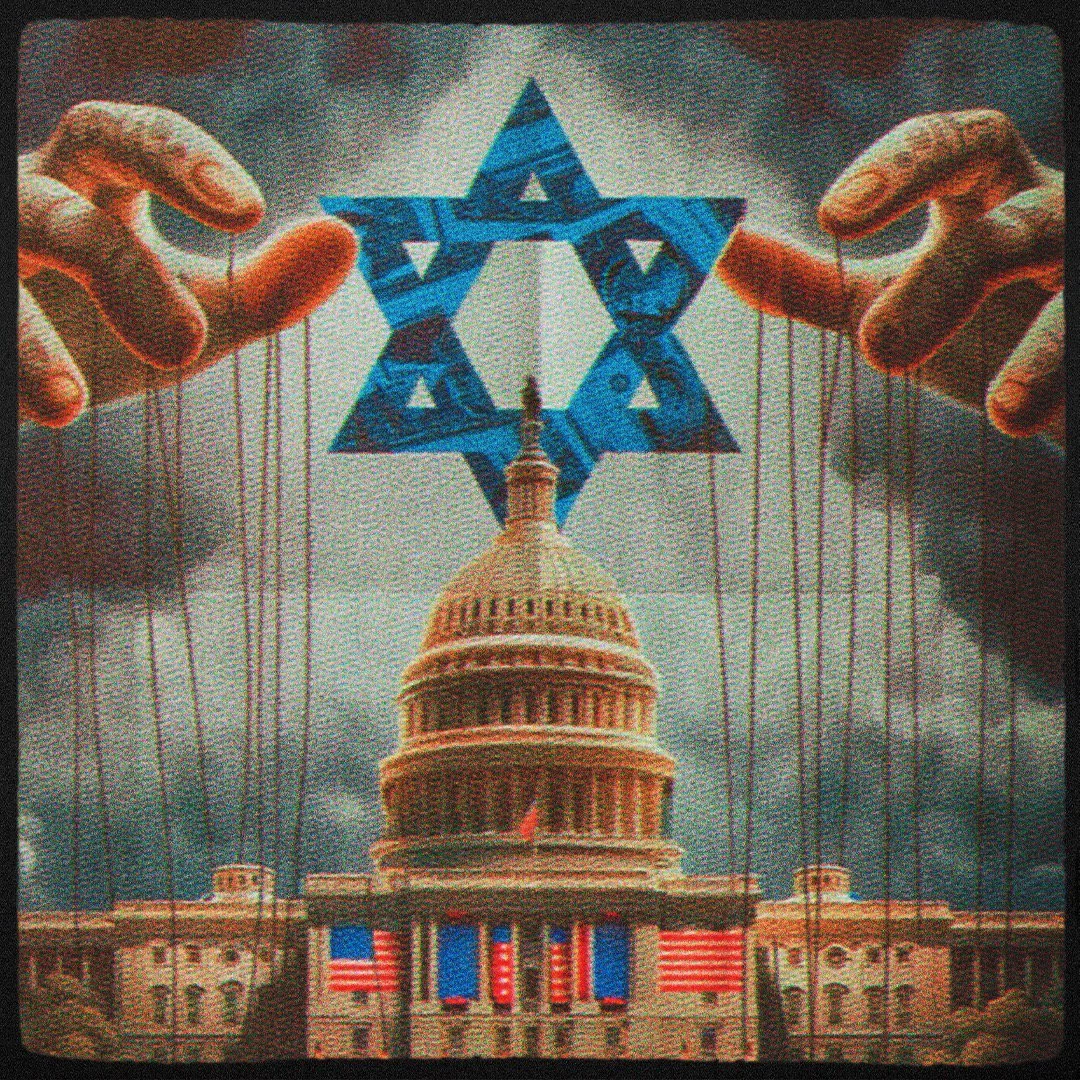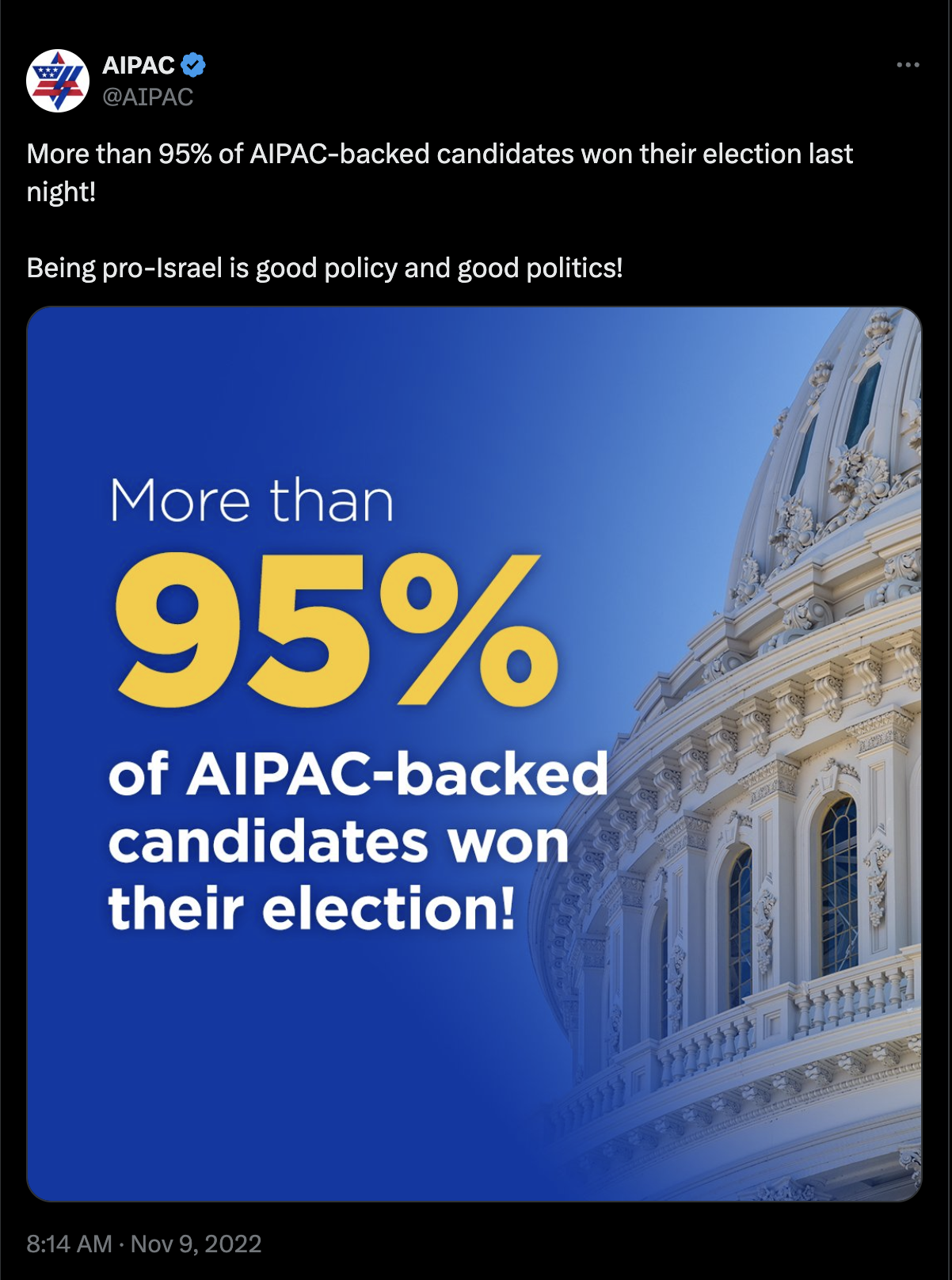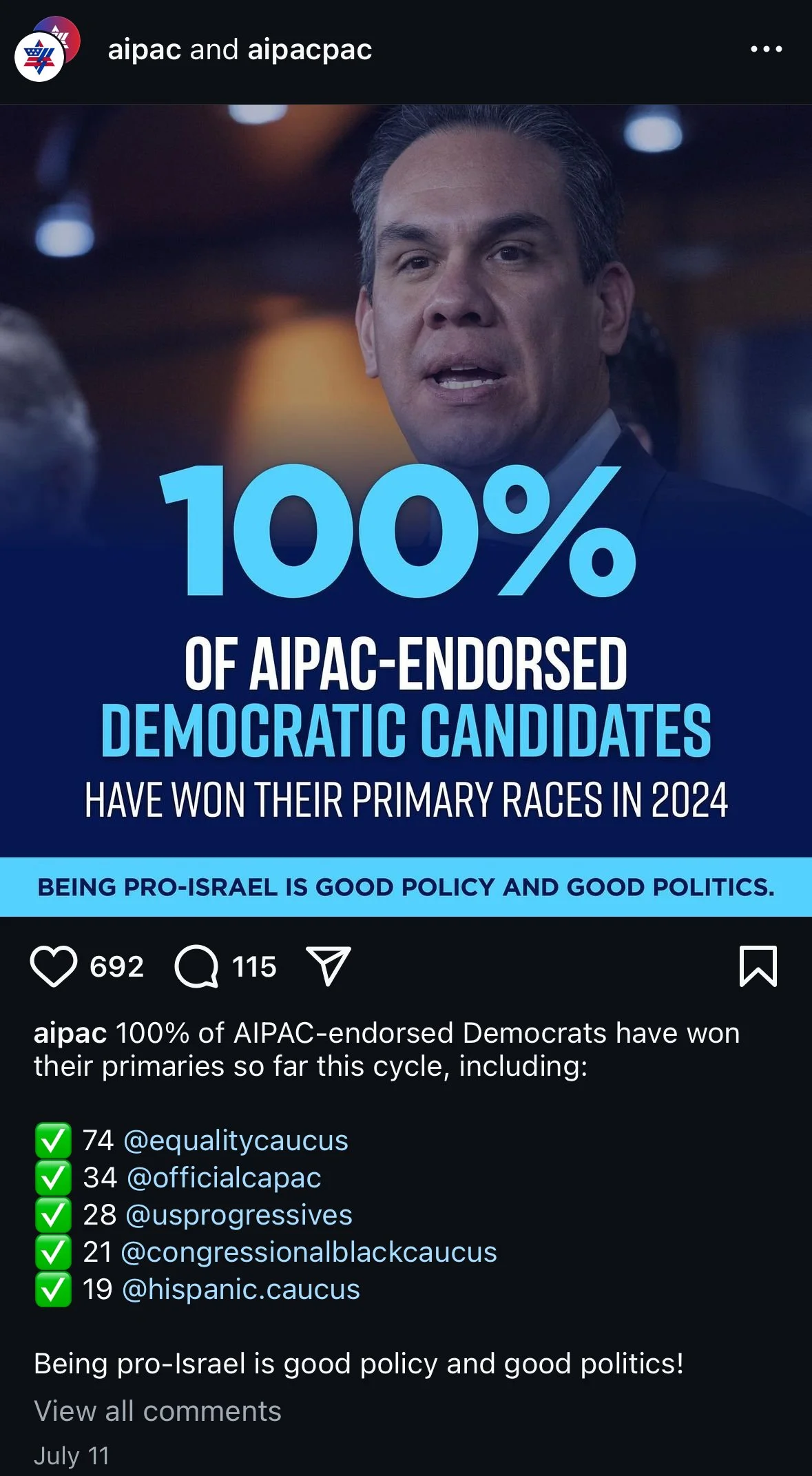AIPAC’s Origins and Its Influence Over U.S. Politics
Founded in 1951 as the American Zionist Committee for Public Affairs, AIPAC is one of the most powerful forces shaping U.S. foreign policy.
The American Israel Public Affairs Committee (AIPAC) has entrenched itself as one of the most formidable lobbying groups in the United States, wielding outsized power over the nation's political machinery.
Founded in 1951, AIPAC was originally established as the American Zionist Committee for Public Affairs (AZCPA) by Isaiah L. Kenen, a Zionist fundamentalist and foreign agent with the Israeli Ministry of Foreign Affairs.
AIPAC was born out of a crisis in U.S.-Israel relations following the barbaric Qibya massacre in 1953, where Israeli forces brutally killed more than sixty Palestinian villagers.
This international scandal triggered a mobilization of American Jews, spearheaded by Kenen, to solidify a force that would aggressively advocate for Israel’s interests, laying the foundation for AIPAC's unprecedented influence, which persists today.
AIPAC's Early Years: From Advocacy to Influence
In its early years, AIPAC operated with an purportedly modest mission—ensuring the United States would support Israel's alleged “right to exist” and thrive in a hostile region. Meanwhile, the United States already had its own interest in working toward Israeli nationhood, one that related to its oil interests in the Middle East region at large.
During this period, AIPAC's advocacy efforts were mainly centered around securing aid packages for Israel, which had been struggling to establish itself as a nation following the 1948 Nakba and the ensuing Arab-Israeli conflict.
Kenen's strategy was to emphasize the shared democratic values between the U.S. and Israel, framing the young nation as a bulwark of democracy in the Middle East. This narrative resonated with American lawmakers, who were eager to maintain a foothold in the strategically vital region during the Cold War.
Expanding Influence: The 1960s and 1970s
As the U.S.-Israel relationship deepened, AIPAC's influence grew. By the 1960s, the organization had begun to establish itself as a significant player in Washington, capable of swaying Congressional votes in favor of Israel. The Six-Day War in 1967 and the subsequent Yom Kippur War in 1973 further solidified AIPAC's role as a critical advocate for Israel's security needs.
During this time, AIPAC began to cultivate relationships with key members of Congress, positioning itself as an indispensable source of information and analysis on Middle Eastern affairs. This period also saw the birth of AIPAC’s political action committees (PACs), which allowed the organization to funnel campaign contributions to pro-Israel candidates, further entrenching its influence.
By the 1980s, AIPAC had cemented its reputation as one of the most powerful lobbying groups in Washington. Its annual policy conference became a must-attend event for politicians seeking to align themselves with pro-Israel policies, a tradition that continues today, with candidates from both parties agreeing on one thing: Zionism. AIPAC's reach extended beyond Capitol Hill, influencing presidential administrations regardless of party affiliation.
The organization played a pivotal role in securing record levels of U.S. military aid to Israel, as well as in shaping the discourse around key issues such as the Israeli-Palestinian conflict and Iran's nuclear ambitions. This, of course despite Israel’s own “open-secret” nuclear program, the existence of which should prohibit the aid the United States regularly sends to Israel.
AIPAC’s Dominance in U.S. Politics
To be sure, AIPAC's rise to power has not come without controversy. Critics argue that the organization's outsized influence undermines the democratic process, prioritizing the interests of a foreign nation over those of the American people. Moreover, AIPAC's aggressive tactics—such as targeting lawmakers who are perceived as insufficiently supportive of Israel—have drawn condemnation from across the political spectrum.
The power of AIPAC and its network of PACs extends beyond simple lobbying. As revealed in a 1987 "60 Minutes" investigation, AIPAC has been accused of covertly coordinating with these PACs to direct vast sums of money to favored candidates while systematically undermining those who challenge its dominance.
Although AIPAC officially denies these allegations, internal memos that have surfaced over the years paint a different picture—one of an organization that meticulously orchestrates political donations to shape U.S. policy in Israel’s favor.
AIPAC Today
Today, AIPAC’s influence extends beyond traditional lobbying. The organization, alongside Mossad, an intelligence wing of Israel’s government known for its own extrajudicial operations, has become the spearhead of a dangerous ideological campaign to conflate Judaism with Zionism. This tactic is designed to suppress any criticism of Israel by falsely labeling it as anti-Semitism.
AIPAC’s propaganda machine aggressively targets supporters of the Boycott, Divest, and Sanction (BDS) movement, branding them as anti-Jewish, despite the movement’s clear focus on protesting the policies of the Israeli government, not Judaism or Jewish people. This deliberate conflation serves AIPAC’s agenda by stifling legitimate discourse and marginalizing voices that challenge Israel’s actions.
The manipulation doesn’t stop there. AIPAC has successfully cultivated an environment in which even mild criticism of Israel can lead to severe political consequences, all under the guise of combating anti-Semitism.
This has created a chilling effect on U.S. politicians, who now fear the repercussions of stepping out of line with AIPAC’s hardline stance. As revealed by Viktor Ostrovsky, Mossad’s influence in U.S. policy has further bolstered AIPAC’s efforts to control the narrative, ensuring that Israel’s interests remain paramount, often at the expense of U.S. democratic values and open debate.
AIPAC’s Continued Influence
AIPAC’s origins as a Zionist advocacy group have evolved into a seemingly immovable force of political influence, playing a central role in shaping U.S. foreign policy toward Israel.
From the outset, Kenen’s leadership, characterized by manipulation and strategic coercion, truly set the stage for AIPAC’s enduring dominance.
AIPAC’s ability to coordinate political donations and exert control over elections reveals the extent of its power and the potential dangers it poses to the democratic process.
While AIPAC’s existence has long subsisted under the guise of securing unwavering support for Israel, it has seemingly become more emboldened than ever, explicitly bragging about the control it wields over the balance of power in U.S. policymaking and subsequent shaping of public opinion.


